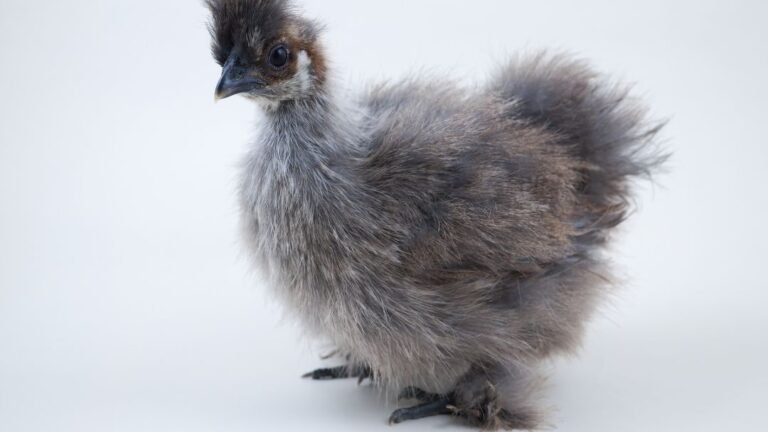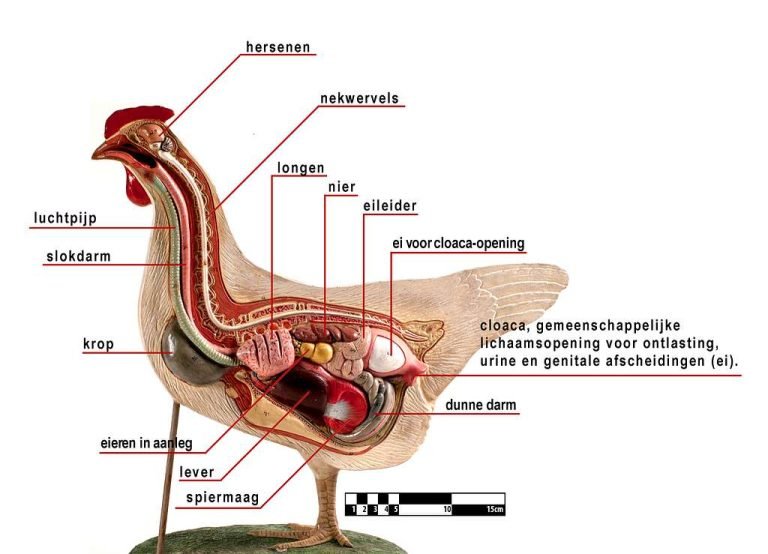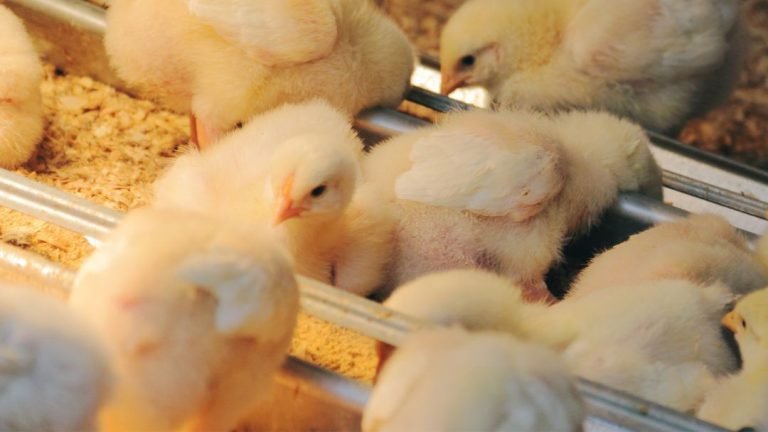Yes, chickens can eat pumpkins and pumpkin seeds without any harmful effects. Pumpkins provide nutritional benefits and act as a natural dewormer for chickens.
When it comes to feeding chickens, it is important to provide a balanced diet that includes a variety of fruits and vegetables. One such vegetable that you can offer to your flock is pumpkins. Not only are pumpkins rich in vitamins A, C, and E, but they also contain fiber, which aids in digestion.
Moreover, pumpkins can act as a natural dewormer, helping to keep your chickens healthy and free from parasites. In addition to the flesh of the pumpkin, chickens can also safely consume pumpkin seeds. These seeds are packed with protein, healthy fats, and other essential nutrients. Feeding pumpkins and pumpkin seeds to your chickens adds variety to their diet and can contribute to their overall well-being and egg quality. So, don’t hesitate to share your leftover pumpkins and seeds with your feathered friends – they’ll surely enjoy this nutritious treat!
Understanding The Nutritional Value Of Pumpkins For Chickens
When it comes to providing a well-rounded diet for our feathered friends, exploring new and nutritious food options is always a good idea. One such option that often pops up during the fall season is pumpkins. These vibrant and versatile fruits are not only a festive decoration but can also serve as a valuable addition to your chickens’ diet. In this section, we will dive into the nutritional composition of pumpkins, the benefits they offer for chickens’ health, and how they can help improve egg quality.
Nutritional Composition Of Pumpkins
In order to understand the value that pumpkins hold for chickens, it’s important to take a closer look at their nutritional composition. Pumpkins are low in calories while being rich in key nutrients that are essential for the overall health of your flock. They are a great source of vitamins A and C, providing a natural boost to your chickens’ immune system. Additionally, pumpkins are packed with fiber, which aids in digestion and can prevent various gastrointestinal issues that chickens may encounter.
Benefits Of Pumpkins For Chickens’ Health
The benefits of including pumpkins in your chickens’ diet go beyond their nutritional value. Pumpkins can contribute to maintaining healthy feathers and skin due to their high beta-carotene content, which helps promote vibrant plumage. They also possess antioxidant properties that can help combat the damaging effects of free radicals, potentially reducing the risk of certain diseases in chickens.
Furthermore, pumpkins contain minerals such as potassium, magnesium, and calcium, which are essential for proper muscle function, bone health, and egg production. These minerals play a vital role in supporting chickens’ overall well-being and can contribute to strong eggshells and enhanced egg quality.
How Pumpkins Can Improve Egg Quality
When aiming for high-quality eggs, incorporating pumpkins into your chickens’ diet can be a game-changer. The natural components found in pumpkins, such as carotenoids, alpha-lipoic acid, and zinc, have been attributed to better egg yolk color, increased nutrient density, and improved taste. By including pumpkins in their diet, you can enhance the nutritional value of the eggs your chickens produce.
In addition, the high fiber content in pumpkins can contribute to better digestion and nutrient absorption in chickens, promoting overall egg production. With improved digestion, your hens are more likely to lay consistently and maintain higher production levels, ensuring a steady supply of fresh and nutrient-rich eggs.
In conclusion, pumpkins offer a myriad of nutritional benefits for chickens, from boosting their immune system to improving egg quality. By providing this seasonal treat to your flock, you can keep them healthy, happy, and thriving.
Feeding Pumpkins To Chickens: Dos And Don’ts
Feeding pumpkins to chickens can be a great way to provide them with a nutritious and delicious treat. Pumpkins are packed with essential vitamins and minerals, such as vitamin A, which promotes good eyesight, and potassium, which supports overall health. However, just like with any food, there are certain dos and don’ts to keep in mind when it comes to feeding pumpkins to chickens. In this article, we’ll explore the proper preparation of pumpkins for chickens, recommended amounts to feed them, as well as potential risks and cautionary measures to take.
Before feeding pumpkins to your feathered friends, it’s crucial to properly prepare them. Follow these dos and don’ts:
H3dos:/h3
- Remove any stems or leaves from the pumpkin.
- Cut the pumpkin into smaller, more manageable pieces to prevent choking hazards.
- Scrape out the seeds and pulp from the inside of the pumpkin.
- Wash and clean the pumpkin to remove any dirt or residue.
- Offer the pumpkin to your chickens in their regular feeding area or scatter it on the ground for them to peck at.
H3don’ts:/h3
- Avoid feeding pumpkins that have been treated with pesticides or other chemicals.
- Do not offer rotten or moldy pumpkins to your chickens, as they can cause digestive issues.
While pumpkins are a nutritious addition to your chickens’ diet, it’s important to feed them in moderation. Too much pumpkin can upset their digestive systems. Here are some recommended amounts:
| Chicken Size | Recommended Pumpkin Amount |
|---|---|
| Small (Bantams) | 1/8 to 1/4 cup per chicken |
| Medium (Layers) | 1/4 to 1/2 cup per chicken |
| Large (Breeds like Rhode Island Reds) | 1/2 to 1 cup per chicken |
Always monitor your chickens’ intake and observe how they are responding to the pumpkin treats. If you notice any digestive issues, reduce the amount or frequency of pumpkin feeding.
While pumpkin is generally safe for chickens to consume, it’s important to be aware of potential risks and take necessary cautionary measures:
- Chickens may become overly reliant on pumpkin treats and neglect their regular diet. Ensure that pumpkins are given as a supplement, not a substitute, for their balanced feed.
- Do not give chickens raw pumpkin seeds, as they may be too hard for them to digest. Instead, roast the seeds without adding any salt or seasoning, and offer them as an occasional snack.
- Pumpkins have a high moisture content, and excessive consumption can lead to diarrhea. Moderation is key!
By following these dos and don’ts, providing recommended amounts, and taking necessary precautions, you can safely incorporate pumpkins into your chickens’ diet. Remember, a happy and healthy flock is a well-nourished flock!
Pumpkin Seeds: A Valuable Supplement For Chickens
htmlChickens are omnivorous creatures, meaning they can eat a wide variety of foods. While their primary diet consists of grains, insects, and vegetables, it is natural to wonder if they can consume pumpkins and pumpkin seeds. In this article, we will explore the question of whether chickens can eat pumpkins and pumpkin seeds, with a specific focus on the benefits and guidelines for incorporating pumpkin seeds into their diet.
Nutrient Profile Of Pumpkin Seeds
Pumpkin seeds are a powerhouse of nutrients, making them an excellent supplement for chickens. These small seeds are rich in essential vitamins and minerals, including:
| Nutrient | Amount per Serving |
|---|---|
| Protein | 10 grams |
| Fat | 14 grams |
| Fiber | 1.3 grams |
| Iron | 2.8 milligrams |
| Zinc | 2.2 milligrams |
Health Benefits Of Pumpkin Seeds For Chickens
By including pumpkin seeds in your chickens’ diet, you provide them with several health benefits. These include:
- Improved feather health and appearance due to the presence of essential fatty acids.
- Boosted immune system as pumpkin seeds contain antioxidants that help protect against diseases.
- Promoted digestive health as the seeds are a good source of fiber, aiding in proper digestion.
- Enhanced egg quality and production due to the rich protein content in the seeds.
Guidelines For Incorporating Pumpkin Seeds Into Chickens’ Diet
When adding pumpkin seeds to your chickens’ diet, it’s essential to follow these guidelines:
- Introduce pumpkin seeds gradually to allow the chickens’ digestive system to adjust.
- Ensure the pumpkin seeds are free from any additives or seasonings.
- Provide the seeds as a treat or supplement and not as a replacement for their regular balanced diet.
- Crush or grind the pumpkin seeds for easier consumption and digestion.
- Monitor your chickens’ response to the introduction of pumpkin seeds and adjust the quantity accordingly.
Remember, while pumpkin seeds offer numerous benefits, moderation is key. Ensure that pumpkin seeds are given as a supplement and not in excess, as too many can lead to an imbalance in their diet.
Promoting Digestive Health In Chickens With Pumpkins And Pumpkin Seeds
When it comes to a healthy and balanced diet for chickens, incorporating pumpkins and pumpkin seeds can offer numerous benefits. Not only are pumpkins a delicious and nutritious treat for our feathered friends, but they also play a key role in promoting digestive health. From improving gut health to preventing common digestive issues, pumpkins and pumpkin seeds can be a valuable addition to the diet of your chicken flock. Let’s explore the impact of pumpkin fiber, regulating gut health, and the benefits of pumpkin seeds on chickens’ digestive systems.
Pumpkin Fiber And Its Impact On Chickens’ Digestion
Pumpkins are known for their high fiber content, which is crucial for maintaining a healthy digestive system in chickens. The fiber present in pumpkins acts as a natural regulator, promoting regular bowel movements and preventing constipation. This is particularly important for chickens as digestive issues can lead to discomfort, anorexia, or even health complications. Including pumpkin in their diet ensures a good supply of dietary fiber, allowing for proper digestion and nutrient absorption.
Regulating Chickens’ Gut Health With Pumpkins
Chickens’ gut health plays a pivotal role in their overall well-being, and pumpkins can contribute significantly to maintaining a balanced gut microbiome. The soluble fiber in pumpkins acts as a prebiotic, serving as a valuable food source for the beneficial bacteria present in the chickens’ intestines. This promotes the growth of healthy gut flora and improves the overall digestive function. By regulating the gut health, pumpkins can help prevent digestive disorders and maintain a robust immune system in chickens.
Preventing Common Digestive Issues With Pumpkin Seeds
In addition to the flesh of the pumpkin, the seeds also offer distinct benefits for chickens’ digestive health. Pumpkin seeds are an excellent source of essential fatty acids, such as omega-3 and omega-6, which are known to have anti-inflammatory properties. These fatty acids can prevent inflammation in the digestive tract and alleviate common digestive issues such as gastritis or colitis. Furthermore, the seeds contain amino acids that support the production of digestive enzymes, ensuring efficient breakdown of food and optimal nutrient absorption.
By including pumpkin seeds in your chickens’ diet, you can provide them with the necessary nutrients and support their overall digestive health.
Other Surprising Benefits Of Feeding Chickens Pumpkins And Pumpkin Seeds
When it comes to feeding your chickens, you might not immediately think of pumpkins and pumpkin seeds. However, these seasonal favorites can offer a range of surprising benefits for your flock. In addition to being a tasty treat, pumpkins and pumpkin seeds can enhance chickens’ feather quality and coloration, boost their immune system, and potentially provide behavioral benefits. Let’s explore these unexpected advantages in more detail.
Enhancing Chickens’ Feather Quality And Coloration
Did you know that feeding pumpkins and pumpkin seeds to your chickens can promote a lustrous plumage? These nutritious treats contain essential vitamins and minerals, such as vitamin A and zinc, which are crucial for feather health. Incorporating pumpkins into their diet can help chickens develop shinier and stronger feathers, enhancing their overall appearance. Not only will your flock look more vibrant and beautiful, but their feathers will also be more resistant to damage, ensuring they stay healthier for longer.
Boosting Chickens’ Immune System With Pumpkins
Pumpkins are packed with immune-boosting properties that can help keep your chickens healthy and illness-free. These vibrant orange gourds are rich in antioxidants, vitamins C, E, and beta-carotene, all of which play a vital role in maintaining a strong immune system. By adding pumpkins to your chickens’ diet, you’ll be providing them with a natural defense against infections and diseases. A robust immune system means healthier chickens, fewer veterinary visits, and an overall happier flock.
Potential Behavioral Benefits Of Pumpkin-enriched Diet For Chickens
In addition to promoting physical health, pumpkin-filled meals may offer behavioral benefits for your chickens. Pumpkins are a great source of dietary fiber, and as any chicken owner knows, keeping their digestive system running smoothly is essential. Insufficient fiber in a chicken’s diet can lead to behavioral issues like pecking, feather picking, and egg eating. By incorporating pumpkins into their meals, you can help regulate their digestive system, reducing the likelihood of these behavioral challenges. A happy and content flock is a delight to observe and care for.
Feeding your chickens pumpkins and pumpkin seeds can be a simple yet effective way to enhance their overall well-being. From improving feather quality to boosting their immune system and potentially aiding in behavioral health, these natural treats offer a range of benefits. So, why not consider adding pumpkins to your flock’s diet this season? Your chickens will thank you with their vitality and happiness.
Conclusion
To sum up, chickens can indeed eat pumpkins and pumpkin seeds, as they offer a range of nutritional benefits. Pumpkins provide vitamins, minerals, and fiber, promoting good health and overall well-being for your feathered friends. However, it’s important to remember to remove any sharp or hard outer shells before feeding them to chickens.
With moderation and proper preparation, pumpkins and pumpkin seeds can be a great addition to your chickens’ diet. Happy feeding!




